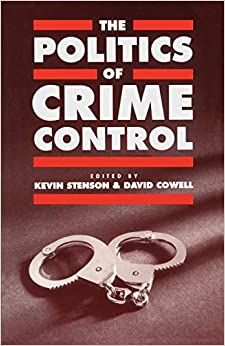The Politics of Crime Control
no information available
How exactly does one define crime, crime prevention, and control? Who defines the acts labeled criminal? Who devises the sanctions, and who acts as agents of social control? These and other thought- provoking questions are raised in The Politics of Crime Control. A group of leading international criminologists from all over the political sphere play a key role in defining these terms. They examine the formation and implementation of official crime prevention and control policies, explore a range of critical perspectives which define crime, and discuss proposals for its prevention and control. Challenging and accessibly-written, The Politics of Crime Control will be excellent reading for students and professionals of criminology, social work, probation, police studies, and youth work. 'This is a most useful collection of disparate ideas about crime control from an international group of authors. Credit must go to the editors for bringing such a wide range of political analyses of crime together.' --British Sociological Association Newsletter 'It is a powerful and useful collection, not just in terms of the platform it gives to criminologists of markedly different persuasions simply to spell out their agendas for the 1990s and beyond, and the intellectual responsibility it places directly on the reader to compare and contrast the strengths and weaknesses of these different positions. . . . This is a refreshing and highly stimulating contribution to criminological debate.' --The Howard Journal 'This book brings together the work of leading international criminologists from all sides of the political spectrum and from different countries. . . .The editors are teachers of criminology, the contributors are academics in different British, American, Canadian and Dutch Universities. The essays are of particular contemporary interest.' --International Review of Administrative Services 'An effective attack. . . . Stenson's superb introductory essay situates the debates of criminology and criminal justice policy in a Foucaultian view of knowledge as a variable product of contending 'power circuits.' --Contemporary Sociology ... Read more Read less











